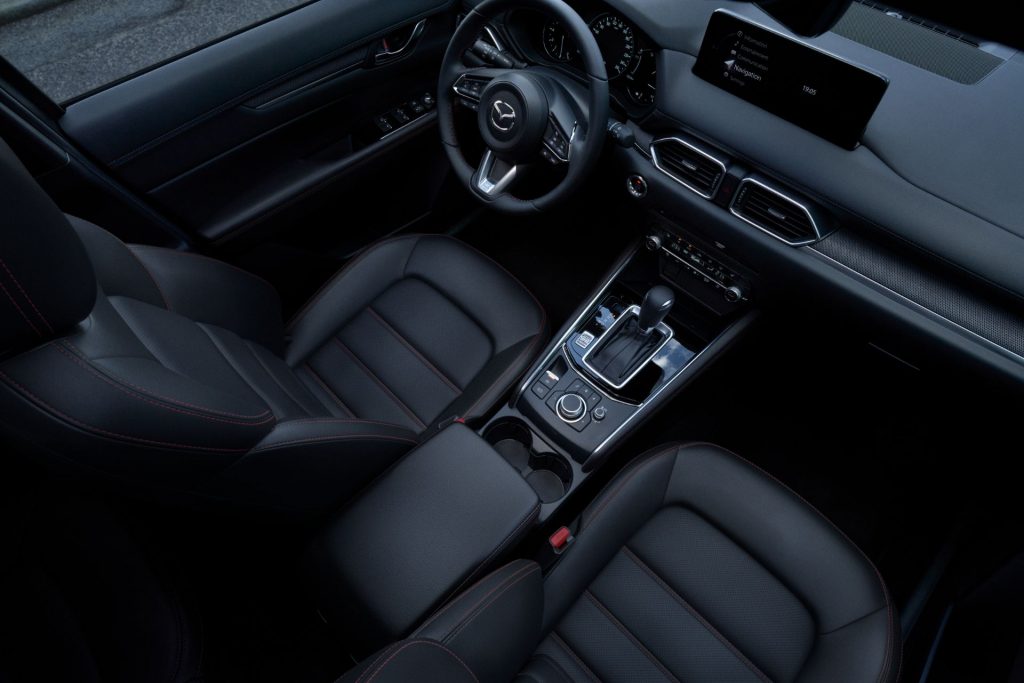An earlier version of this story incorrectly led with an image of a CX-30 instead of a CX-5. We’ve sent the myopic writer to the optician and sent the design team at Mazda (who also put CX-30 pics in their own CX-5 media gallery) some tips on how to get more imaginative so we can actually tell their cars apart – ed.
Mazda has announced prices for the 2024 CX-5, and if you saw our recent story on the new season’s CX-50 prices, you can probably guess where this is going. As it did with the CX-50, Mazda has deleted the base spec 2.5 S from the CX-5 lineup, which automatically makes the entry point to the CX-5 lineup more expensive than it was even before you’ve factored in any price rises.
The 2023 CX-5 S cost $26,700, but the new base model is the 2.5 S Select that carries a $29,300 MSRP, up $800 from last year. The $30,650 Preferred climbs by a more moderate $460 to $31,950, the previously $33,000 Premium is now $33,900, and at the top of the naturally aspirated line the 2.5 S Premium Plus is now a grand more expensive, taking its price to $36,500.
All of those CX-5s continue with the same 187 hp (190 PS) turbo-free four-cylinder engine, six-speed automatic transmission and Mazda’s i-Active all-wheel drive, but the addition of the automaker’s i-Stop start-stop tech improves combined economy from 26 to 28 mpg. Other spec changes seem to be limited to a pair of USB-C sockets on the 2.5 S Carbon and wireless Apple CarPlay and Android Auto connectivity with wireless phone charging on the Premium Plus.
Related: 2024 Mazda Models Get New Beige Carbon Turbo Styling Packages

But buyers who dithered over buying a Mazda CX-5 last year and plan to return in 2024 to finalize their purchase will notice more changes in the lineup. The 2023 range consisted of two blown SUVs, the $36,850 Turbo and $39,650 Turbo Signature, but the new lineup is three-strong and made up of the $37,000 Carbon Turbo, $37,800 Turbo Premium and $40,600 Turbo Signature. All three employ the same 256 hp (260 PS) 2.5-liter engine fitted to last year’s Turbos, but the spec mirrors that of their naturally aspirated brothers.




